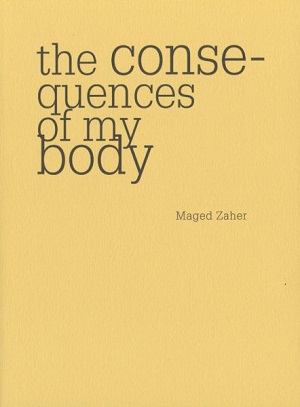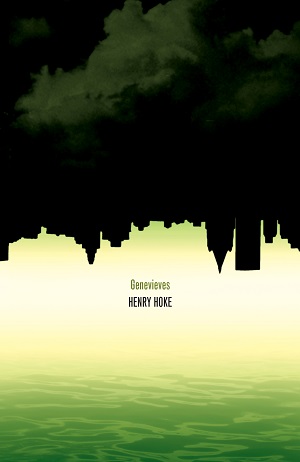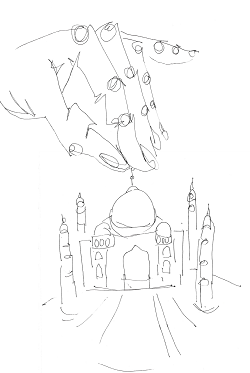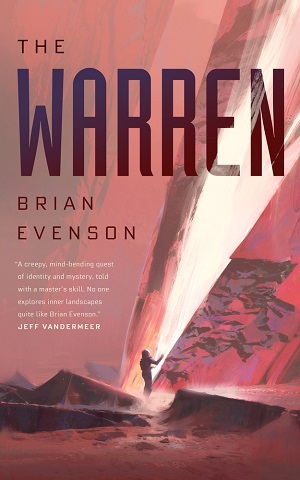 Forbidden Fruit, by Stanley Gazemba
Forbidden Fruit, by Stanley Gazemba
When most people talk about immersion today, they refer to it as an element of a visual medium. This makes some degree of sense, given how visual our species is. Technology has allowed us to create images of unprecedented creativity and realism. In literature, however, immersion is often only discussed in genres of fiction that are expected to engage in no small amount of world building – science fiction and fantasy, usually. This is a shame, really, because no work of fiction should take for granted that its readers will, by default, be fully engaged with the text. There is an onus on the author to respect that, in order to build a world, even one meant to acutely mirror our own, the world and its inhabitants must truly feel alive. Rarely do we encounter a better example of this than Stanley Gazemba’s Forbidden Fruit, a novel about a community in Kenya, a novel that embodies the earth itself and our experience of it.
One of the first things you will realize about Forbidden Fruit is that it is among the least pretentious novels you will have ever read. This is not meant as a slight against what some might erroneously consider loftier fiction – rather, it is meant to convey that Gazemba’s novel is the epitome of “down to earth”. It deals with the human condition, not in some overtly existential or cosmological sense, but by showing the daily lives of a community that must work directly for its subsistence and which engages with the very real stressors drawing it in every conceivable direction. The text is immediately and powerfully relatable to anyone who has had to really work for a living, not only in the trials and rewards of such a life but especially with regards to what effect this has on human relationships. This is the real meat of the novel’s perspective on the human condition. It embraces the idea that we are inherently social creatures (regardless of our level of introversion) and explores the concept that our lives are a struggle between the desires of the self and the bonds of community. To be sure, the novel does not suggest that the two things are always or inherently opposed, but as separate entities they can and will inevitably find moments of opposition.
The examples of this are plentiful: a poor and loyal husband and father presented with the opportunity for an affair with a beautiful and wealthy woman; a mother and wife dealing with the inherent and unfair instability of a patriarchal culture; a boy forced to deal with the harsher realities of the adult world; a woman who married out of an earnest and intense love realizing that she is no longer the object of her husband’s focus; a sloppy bachelor with aspirations of true romantic connections but a streak of independence and pride holding him back. Gazemba travels freely between these characters and more, not binding the story to any one mind but making sure that each is fleshed out and present to experience the consequences, good or bad, of life in this village. The very structure of the text reflects the relationship between the individual and the community, showing the former as very much a part of the latter, and the latter only defined by the collective of the former. It actually takes some getting used to if you are familiar with texts designed to be hyperfocused and constrained to the mind of a single protagonist. An argument can be made that Ombima is the central character of Forbidden Fruit, but the actions and thoughts of almost every other character are as impactful as his own.
If this tackling of the human condition can be thought of as immersion on a character level, then Forbidden Fruit has no shortage of immersion on a more traditional level. Quite simply, this is one of the more vivid and rich depictions of a setting for a novel that I have ever encountered. If you will forgive the Ameri-Anglo centrism I was educated in, I am reminded of Fenimore Cooper or Tolkein in the attention given to beautiful vistas, but without the moments of getting lost that can appear in works like Last of the Mohicans or Fellowship of the Ring. The feel of the wet mud, the smell of banana trees, even the impact of a hoe on earth too dry to till are all completely engrossing. This is no less true of what would be considered the more unpleasant sensations: the tearing of barbed wire on skin, the sound of gasping for air, the air inside a contentious hospital waiting room. Though polite about it, Gazemba is insistent that his reader be there, in the moment, with their senses occupied and their ability to avoid empathy compromised. The world in which the community and the individual live is no less a part of that relationship, equally shaped by and shaping its participants.
Forbidden Fruit is a truly quality novel that has, for all of its grounded nature, an inexhaustible wealth of ideas to address. Are you a Marxist looking for the class struggle? Present. Are you a Feminist looking for how woman resist the contradictions and subtler oppressions of patriarchy? Present. Are you a reader in the United States who is in need of greater exposure to literature from a different culture that feels both familiar and decidedly new? Present. Or are you looking for a novel that you can sit down with, read, and truly and totally experience? This is the book for you.
Forbidden Fruit will be available June 2017 through The Mantle, and is available now for pre-sale.

 Confetti-Ash, Selected Poems of Salvador Novo
Confetti-Ash, Selected Poems of Salvador Novo My country, tonight by Josué Guébo
My country, tonight by Josué Guébo Apocalypse All The Time, by David S. Atkinson
Apocalypse All The Time, by David S. Atkinson The Consequences of My Body, by Maged Zaher
The Consequences of My Body, by Maged Zaher Genevieves by Henry Hoke
Genevieves by Henry Hoke Dust Bunny City
Dust Bunny City
 Blood on Blood, by Devin Kelly
Blood on Blood, by Devin Kelly Meet Me Here At Dawn, by Sophie Klahr
Meet Me Here At Dawn, by Sophie Klahr Fish in Exile, Vi Khi Nao
Fish in Exile, Vi Khi Nao The Warren, by Brian Evenson
The Warren, by Brian Evenson Bottom’s Dream, by Arno Schmidt
Bottom’s Dream, by Arno Schmidt